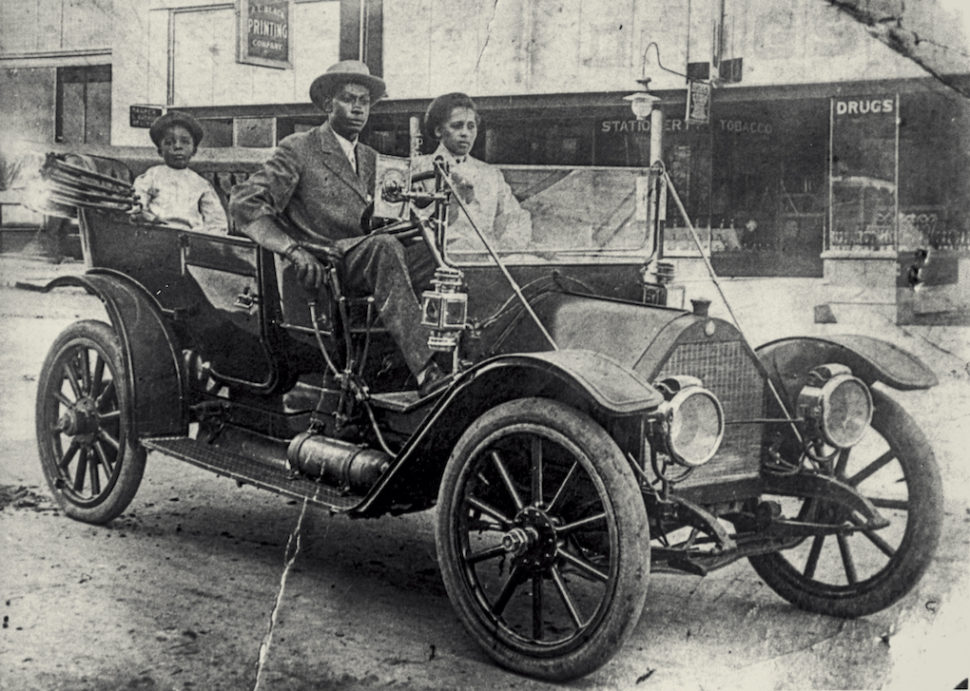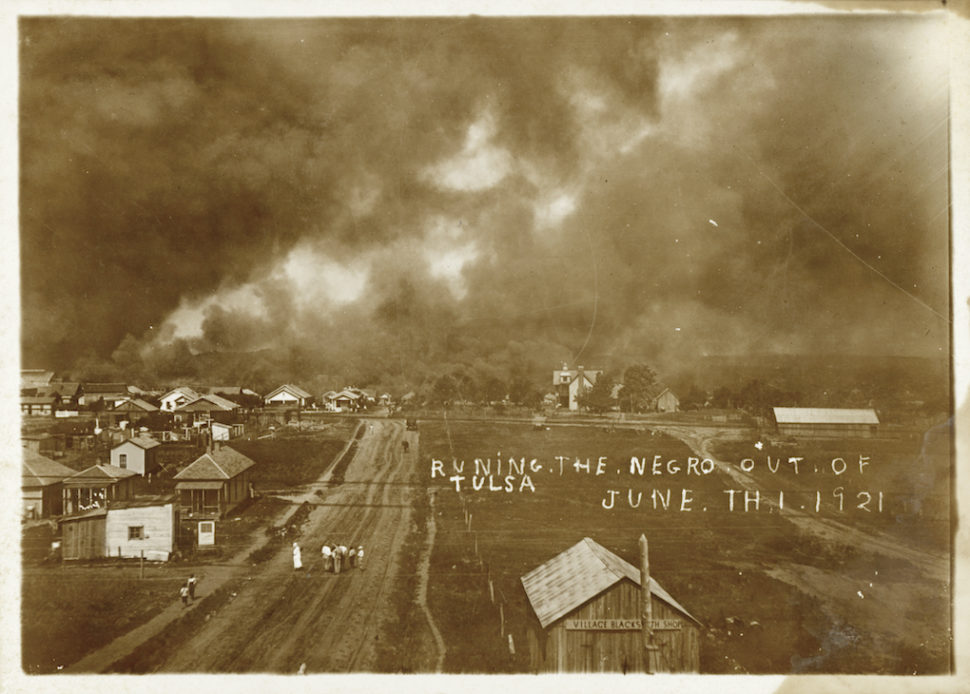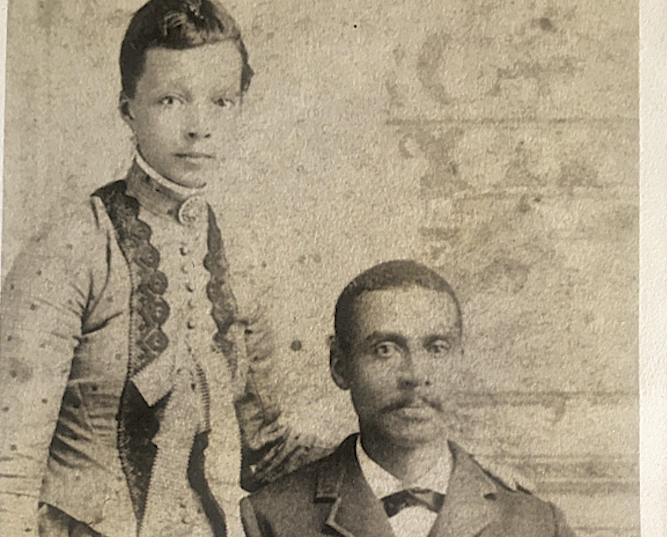May 31, 2021, officially marked 100 years since the massacre that took place in Tulsa, Oklahoma. Thousands of Black men, women, children, and esteemed business owners were displaced— or worse, killed— when bombs dropped and fires set in Tulsa’s Greenwood neighborhood, aka Black Wall Street.
The history of this neighborhood has been spotlighted more in recent years, especially as the United States faces its own racial injustices of today. But, we don’t often hear of the stories of individuals who made the historic Black community what it was.
One man aiming to do so is Chicago native Tucker Toole, who discovered that his great-great-great grandfather was Mr. J.B. Stradford, a man that many compared as the Jeff Bezos of Black Wall Street. Although Toole was aware of his family’s remarkable history, it wasn’t until he began researching for a piece he penned for NatGeo, that he found there was more to Mr. Stradford’s story than what he had been told.
“My grandfather explained our family’s history to me when I was in elementary school,” Toole told Travel Noire. “But, it wasn’t until I began my research for the NatGeo story that I found more about who my great-great-great grandfather was. Now, my family and I are working to bring his story to the front lines.”
According to Toole, Mr. Stradford was the proud owner of Greenwood’s Stradford Hotel. In a set of handwritten memoirs discovered by Toole’s cousin, he was able to read about and empathize with Mr. Stradford and other Black men and women living in Tulsa during that time.
In one entry, Stradford describes his plan for the hotel.
“By the beginning of 1917, I had amassed quite a fortune,” Stradford wrote as shared via Toole with NatGeo. “I owned 15 rental houses, a sixteen-room brick apartment building. The rental value was $350 a month. The income from other sources were triple. I had a splendid bank account and was living on the Sunnyside of the street. I decided to realize my fondest hope… and that was to erect a large hotel in Tulsa, exclusively for my people.”

Toole goes on to describe that the according to other entries, the Stradford was created to be luxury accommodations for not only Greenwood’s Black residents, but other Black people visiting or staying in the area. The 55-room property opened June 1, 1918, and was said to be an ‘instant success.’
“He wanted this to be comparable to some other top hotels of that time, but exclusively for his people,” Toole shared. “The hotel had chandeliers everywhere, there was a dining hall, concert hall, a barbershop. He even had plans to expand the business.”
Sadly, only three years later, that dream of expansion, and the hard work and fortune of Mr. Stradford became just one of many casualties of the Tulsa massacre.
The burning of Black Wall Street aka The Tulsa Massacre
According to NatGeo, on May 30, 1921, 19-year-old Dick Rowland entered an elevator in the Drexel Building in downtown Tulsa. The white elevator operator, 17-year-old Sarah Page, screamed for reasons unknown (the most common explanation is that the young Black man stepped on her foot or tripped). The Tulsa Tribune editor “went directly to his office,” wrote J.B., “and put a large headline on the first page saying NEGRO ASSAULTED A WHITE WOMAN IN ELEVATOR OF DREXEL BUILDING, which assured the wrath of the Ku Klux Klan.”
This spawned the deadly attack as we know it. The two-day massacre left over 10,000 Black people displaced and some 6,000 were placed in detainment camps. Among those sent to the detainment camps, JB Stradford.

“The Stradford was burned to the ground,” Toole explained. “In his memoirs, he described the fighter planes flying over the area and dropping bombs. It wasn’t easy reading a lot of this, and it really got me emotional. There was one entry where he talked about being placed in the detainment camp, and word getting back to him that government officials were planning to lynch him soon. Government officials, not just regular members of the community.”
Luckily, Mr. Stradford was able to escape the camp with the help of several people who held him in high regard. Unfortunately, this meant remaining in hiding, and leaving behind a lot of the fortune he had amassed.
“The Stradford Hotel could have been among the ranks of the Hilton, Hyatt, or any other global chain of today. His entrepreneurial spirit would have certainly gotten him there, and it would have all been created by a Black man who started and built it exclusively for his people.”
While we may never see in the physical form what Mr. Stradford would have gone on to do with the business, we have his relatives and descendants— like Tucker Toole— ensuring his story is told and never forgotten.





